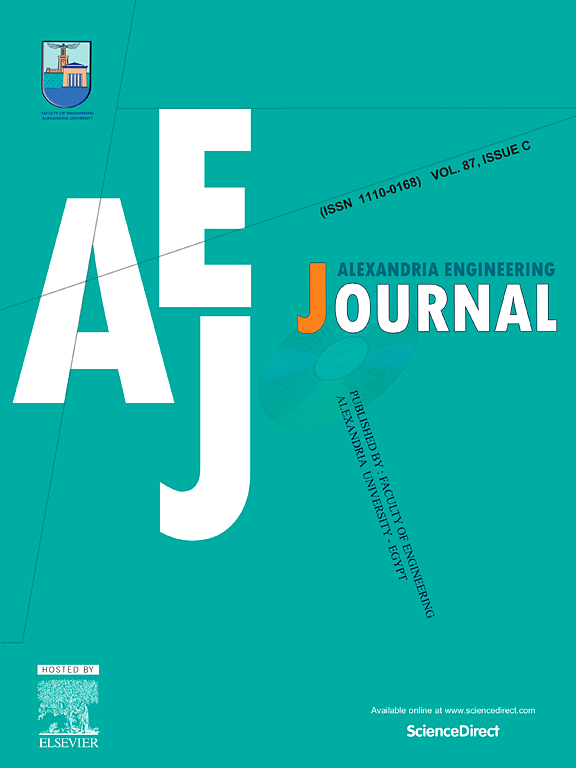On a new version of bicomplex Mittag-Leffler functions and their applications in fractional kinetic equations
IF 6.2
2区 工程技术
Q1 ENGINEERING, MULTIDISCIPLINARY
引用次数: 0
Abstract
The Mittag-Leffler function, often referred to as the ”queen function” of fractional calculus, plays a fundamental role in solving fractional differential equations across various disciplines, including physics and engineering. In this paper, we introduce a novel extension of the classical Mittag-Leffler function to the bicomplex domain, defining the bicomplex -Mittag-Leffler function. We establish its fundamental properties, derive key representations and explore its analytical structure within bicomplex analysis. Furthermore, we investigate its interaction with the bicomplex -Riemann–Liouville fractional integration and differentiation operators, demonstrating its effectiveness in solving bicomplex fractional differential equations. In particular, we provide explicit solutions to bicomplex fractional kinetic equations (FKE), showcasing the applicability of our proposed function. This generalization not only deepens the understanding of fractional calculus in bicomplex spaces but also lays the groundwork for future advancements in both theoretical research and applied mathematics. Our findings contribute to the growing body of work on special functions in bicomplex analysis and open new perspectives for applications in complex systems and mathematical physics.
新版本的双复Mittag-Leffler函数及其在分数阶动力学方程中的应用
mittagg - leffler函数,通常被称为分数阶微积分的“女王函数”,在解决包括物理和工程在内的各个学科的分数阶微分方程方面起着重要作用。本文将经典的Mittag-Leffler函数推广到双复域,定义了双复k-Mittag-Leffler函数。我们建立了它的基本性质,推导了关键表征,并探索了它在双复分析中的分析结构。此外,我们研究了它与双复k-Riemann-Liouville分数阶积分和微分算子的相互作用,证明了它在求解双复分数阶微分方程中的有效性。特别是,我们提供了双复分数阶动力学方程(FKE)的显式解,展示了我们提出的函数的适用性。这一推广不仅加深了对双复空间分数阶微积分的理解,而且为今后理论研究和应用数学的发展奠定了基础。我们的发现有助于双复合体分析中特殊函数的研究,并为复杂系统和数学物理的应用开辟了新的前景。
本文章由计算机程序翻译,如有差异,请以英文原文为准。
求助全文
约1分钟内获得全文
求助全文
来源期刊

alexandria engineering journal
Engineering-General Engineering
CiteScore
11.20
自引率
4.40%
发文量
1015
审稿时长
43 days
期刊介绍:
Alexandria Engineering Journal is an international journal devoted to publishing high quality papers in the field of engineering and applied science. Alexandria Engineering Journal is cited in the Engineering Information Services (EIS) and the Chemical Abstracts (CA). The papers published in Alexandria Engineering Journal are grouped into five sections, according to the following classification:
• Mechanical, Production, Marine and Textile Engineering
• Electrical Engineering, Computer Science and Nuclear Engineering
• Civil and Architecture Engineering
• Chemical Engineering and Applied Sciences
• Environmental Engineering
 求助内容:
求助内容: 应助结果提醒方式:
应助结果提醒方式:


